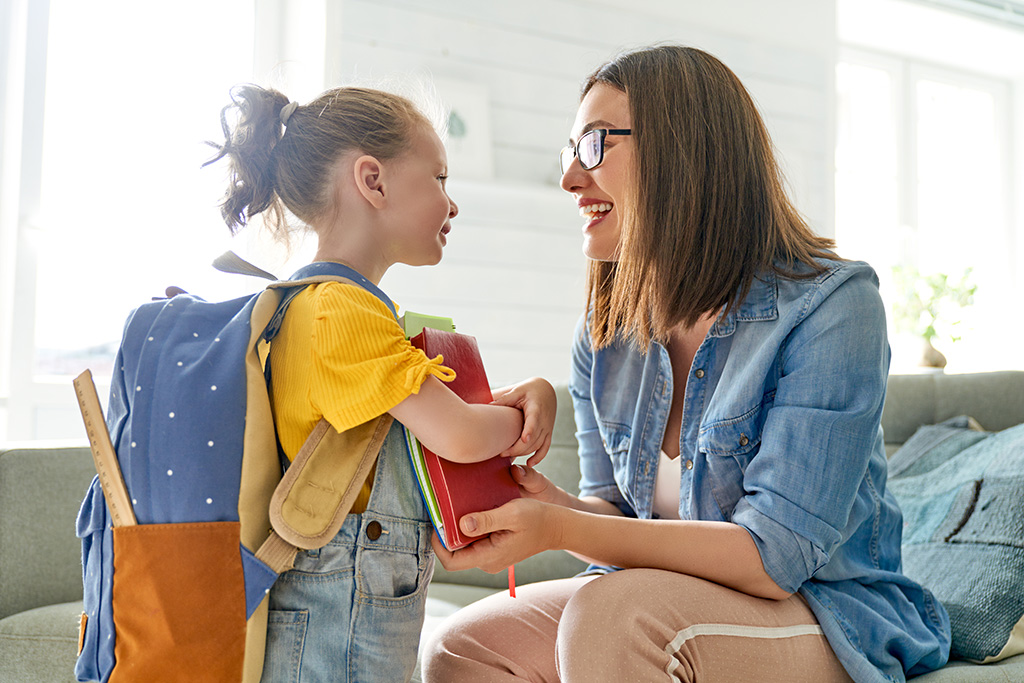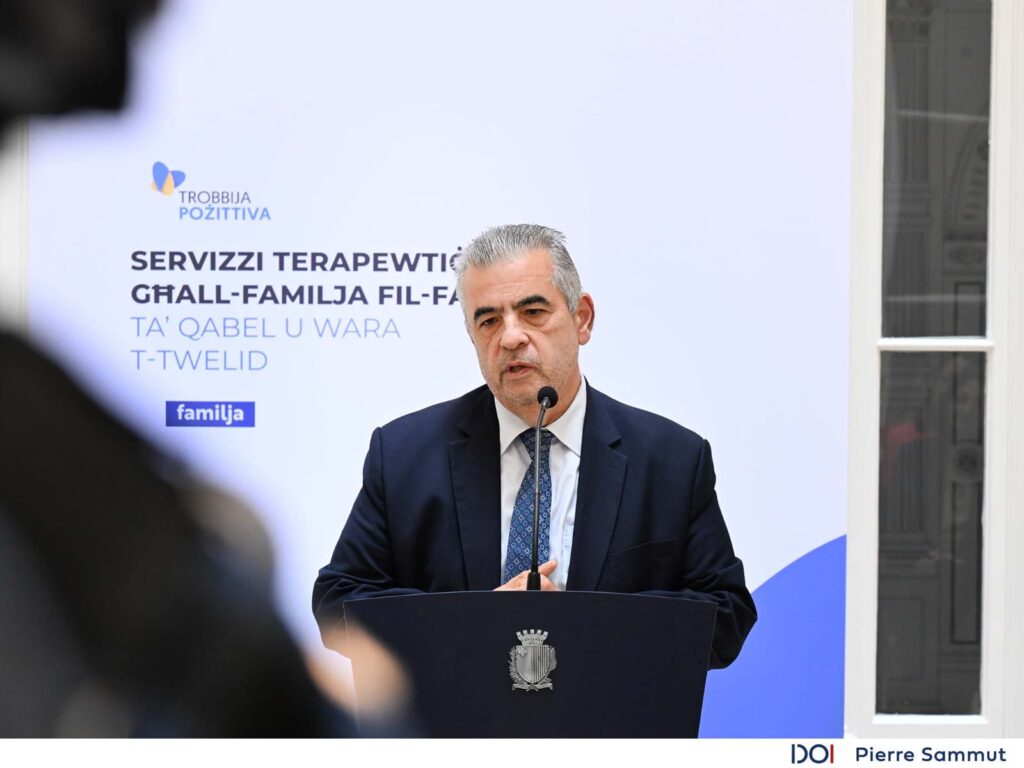
It is important that we state that ‘Parental Rage’ is not a diagnosis, but that it is a word that one can use to describe a deep emotion of anger related to the raising of children. An individual may be the calmest person in the world, however when he/she starts parenting it could be that he/she encounters certain situations which press upon buttons that he/she never knew existed before. These might be originating from his/her own childhood and past experiences, as well as experiences related to the major transition when one becomes a parent.
That very same emotion, which on the surface appears as anger, might be hiding other deeper emotions such as sadness, solitude, lethargy, frustration, anxiety and confusion, as amongst others. Although one might be grateful and content that he/she is a parent, this does not exclude the fact that there are many challenges and that it is, in itself, rather tiring. That same person might also miss his/her former life, where there could have been more independence, more opportunities or career investment, more enjoyment together as a couple, more time for hobby/leisure activities, etc. When one becomes a parent there is a possibility that your identity is lost for a short while, as until you gradually find it again, and this continues to flourish with the new role that you would have obtained as a parent.
When one experiences ‘Parental Rage’ and loses his/her temper in an uncontrolled manner with his/her children, there is a significant possibility that he/she would experience remorse and feelings of guilt later on. That same person could also start to have doubts as on whether he/he is a good parent or not. We know that there isn’t any perfect parent, but we can be good enough parents, where we reflect, we ask for an apology when we are wrong, and we learn from our experiences. That we continue to criticise and beat up ourselves is never beneficial. Therefore, when we surprise ourselves by suddenly feeling that great anger it is important that we pause for a while, that we take a breath and see what can calm us down, and that we think about where this may be coming from, as well as what we can do about it in turn.

Factors related to ‘Parental Rage’ may be:
- lack of sleep;
- hormonal change after pregnancy;
- feelings of stress;
- financial stress;
- relationship problems as a couple;
- difficulty as related to childcare;
- unmet emotional needs;
- strong simulation of our senses;

How can ‘Parental Rage’ affect the relationship with our partner?
Every emotion is valid and important. Each and every emotion emerges for some reason or another and has a specific function. Therefore, we are not here to judge our emotions, but rather so that we are able to accept what we are feeling and to work on it, so as to be able to express it in a healthier manner. When an individual starts to feel emotions of anger and sadness, as amongst others, it is always important that one communicates about this with his/her partner upon feeling calmer. Communication is one of the cornerstones for a more secure and a stronger relationship. If we feel ourselves becoming distant from our partner, it is important that we take action as soon as possible, and that we are not afraid of searching for further help where this is necessary. From my experience as a therapist, I find that it is most often beneficial when I carry out a reminder that our partners cannot read our minds in an efficient manner every time, and thus it is important that we share with them in a clear manner how we are feeling, and what we specifically wish from them. It is also important that we keep showing appreciation and support towards each other.

How can ‘Parental Rage’ affect the relationship with our children?
When as parents we regularly use derogatory language with our children, we would be increasing the possibility that they would feel themselves underserving of love or worthless. This could increase unruly behaviour, as well as physical symptoms, such as for example that one feels unwell. Children might also start to find it more difficult to concentrate, to play and to learn new things.
As parents we should never be abusive towards our children, both physically as well as emotionally. Violence and aggression cannot be justified since they cause a lot of harm, both in the present as well as in the future. In fact, research shows that children who originate from an upbringing where there was abuse, are more likely to suffer from emotional problems in the future and are not confident enough in themselves. It is our responsibility, as parents, that we learn how to understand, to control and to express our emotions. If we ourselves are not capable of doing so, how can we expect this from our children? The children’s brain would still be developing, and it would not yet be capable of controlling certain impulses and emotions. It is our duty as parents that we support our children throughout this process that, yes, requires a lot of patience and support, and even more patience. 😊

What can I do in order to prevent myself from feeling so angry and in such an intensive manner?
- Ask yourself – What can I do in order to take better care of myself, so as to have more energy for me and for my family?
- Check in with yourself – How am I feeling today? Where am I feeling stressed out and from where might this be coming from? What can I do in order to help myself to relax further? Deep breaths, a short or long walk, yoga, eċċ – these are all just a few ideas which may help to give us more energy, so that we are more capable of recognising our emotions, as well as controlling how to also express them better.
- Practice more ‘mindfulness’ – This is a concept which is becoming more and more popular, which focuses on our senses, and which aids us to live more presently in the moment. For example, when one is drinking a cup of tea he/she can focus on :
- choosing the type of tea that he/she wants;
- the overall procedure of how he/she is making this tea;
- the sounds, the smells and the vision of when the kettle boils, as well as when we pour the water itself;
- the sensation of the mug against our hand – does it feel warm? Does it feel heavy? How does the material of the mug feel against our hands?
- the smell of our tea;
- what the tea looks like – what colours does it have, etc;
- the taste of our tea when we drink it gradually;
Through these ideas we can attempt to focus on one thing at a time for just a few minutes. This does not mean that our mind will not take us back to our thoughts and emotions, but we can further train ourselves to bring it back to the present moment for a few minutes. I understand that this is not an easy thing, and it requires a lot of practice. At the same time, when one practices ‘mindfulness’ there is a greater possibility of that same person restabilising himself/herself, and having more patience and energy for dealing with stressful moments.

- Try to make sleep a priority – For some reason or another, as parents we can easily end up sleeping less. This could be, for example, because our children have their night broken up or even as a result of our staying up significantly longer after they have gone to sleep. Everyone understands how precious that time after we put our children to bed is. Finally, the time would have arrived for us to have a bit of quiet time as adults. How many times would we end up staring at our mobile or television? And it could be true that in that moment that’s what we would need … At the same time, night after night, this could also become somewhat of a burden, especially since we would not have the luxury to be able to keep resting in bed as long as we would wish. The more tired out that we are, the greater the possibility that we would have less patience for supporting our children as throughout their various intense emotions.

- Give priority to ‘self care’, where this is beneficial for both ourselves and our children – ‘Self-care’ can be carried out through simple and small things, such as for example: that we check in with ourselves on how we are feeling, that we remind ourselves of the present moment that we are living in and take deep breaths, that we find the time to process the experiences that we have undergone.
- Try to recognise more and list down the moments that bring you joy during your day – These might be simple things, such as a hot cup of tea, or a smile and ‘Good Morning’ from your neighbour. During our day positive things are sure to occur, but it could be that sometimes we do not give them much thought and let them pass away. That we declare our intention of focusing more upon them could also another means of giving us, as well as preserving, our necessary energy. It is also most beneficial that we make a more conscious effort to compliment ourselves, as well as other members of our family.

- Find a creative means of expressing your emotions – This might be through painting, writing, etc. It does not matter which method is utilised, however we are aware of the importance of preventing our emotions from being swept under the rug, as well as not letting them build up gradually, since this would cause more harm than good. As regarding emotions, it is important that we find a method that works for us, so as to express them from within ourselves.

- Practice using more neutral words, together with words which are more suitable to describe our emotions – For example, ‘I feel sad when … ’ It is also important that we are aware of our body language and our tone of voice.
- Keep a record of how many times and when you tend feel that strong sense of anger in order to attempt to understand better the pattern and function that lies underneath – As an example, you might start to notice that every time that your children are irritable, you would start to feel even more frustrated in a disproportionate manner. It could be interesting if you were to reflect on how you were perceived as a child when expressing similar emotion within your own family of origin. Was this form of emotion accepted? Or was this a type of emotion that was not permitted within the home? How did we wish that our parents had acted with us in such moments? What can we learn from these experiences? Being a parent involves a lot of reflection and work upon ourselves.
- Examine your expectations, both for yourself as a parent as well as for your children – Are these wishes realistic and based upon your children’s development, or could they be expectations which are excessively great? Although the intention might be a good one, one could create further stress by being too rigid, where we might also have said ‘yes’ to different opportunities. It is good that we feel enthusiastic towards different forms of work and experiences; at the same time, it is important that we understand that our energy reserve is in itself limited, and when we overburden ourselves we would have less energy and patience for our children. Personally, I find it helpful to remind myself that it is acceptable to say ‘no’, and that I preserve my energy for my children during this time where I represent their entire world. I do not wish that the years roll by and that I would then regret that I was not there for them as much as I wished, whilst being present during their lives in a healthy and calm manner as much as possible. However, there are also certain days which are harder than others, even throughout the life of a parent; where in such instances I remind myself that my children are still young and that their brain is not yet as developed as mine. Therefore they would need me more, in order to be able to calm down. I would also like to share with you that when I am already tired and going through several intense emotions, I am not able to think in such a clear manner as I am doing here. In those moments I need to take a step back and to press the ‘pause’ button, so that first of all I would be able to calm myself down, in order to be able to respond to my children better. Although I try to do the best that I can, I will admit that I do not always manage to keep calm. And when I am mistaken and further realise this, I make it a point to fix my mistake and to nurture my relationship with my children. Thus children would also be learning how one can take care of relationships in a healthy manner.

-
Become increasingly aware of the effect of ‘social media’ on our mental and emotional health – Nowadays we are immersed in a social media culture, where many people share generally positive aspects from their life, including parenting. How many times do we find ourselves, as either in a conscious or in a less conscious manner, comparing how we are doing as parents in contrast to others? How many times might we perhaps criticise ourselves, and view ourselves as less capable parents, if we only pay attention to the beautiful aspects of parental life that others share? Without taking away from the positive outlook, as well as the sense of freedom, that the individual has when sharing content online, where I myself do it sometimes, it is also important to understand that there are many more emotions and obstacles behind the scenes. And when we find ourselves going through difficult moments as a parent, it may help to remember that we are not alone, and that the difficult moments also come to pass. It is also sometimes beneficial that you take a break from social media, and instead choose to be more present in the real everyday life that you spend with your family.

- Plan time for yourself – talk with your partner or with your family and see together how you can plan to have a little bit of personal time, so as to be able to get to know, once again, that part of yourself that is not a parent. That sometimes we manage to go out with some friends, or that we even go out on our own and do things that we enjoy in peace, can help towards giving us a bit more energy, as well as aiding us to be more present, as in a positive manner, in our family life later on. We would also be providing our children with a clear-cut example on the importance of looking after ourselves, together with detaching ourselves from everyday life, in order to be able to take care of several aspects of our identity accordingly.

What can I do when I have exceeded my limit?
All of us, as parents, have those moments where we are wrong, and where we feel that we did not act in a good manner. We are all human in nature, and it is important that we practice being gentle, whilst understanding what is happening inside of us which is pushing us to act in this manner. Is it fatigue? Is it sadness? Is it a confusion of identity? Is it a lack of support? Is it because of all of this or something else? In order to grow and control ourselves, we need to reflect and to think upon what we have been through and what we are going through. If we continue to live our life without reflecting upon any of it, all of it would be for naught.
An important point is that when we realise that we have committed a mistake, we should immediately stop our behaviour as at that very moment and apologise to our children, as well as observe how we can act better as parents. Simply stating what a bad parent I am or that I should have known better is not going to help amend the current situation and our emotional state. Probably, this will rather have the opposite effect, since this will amplify further stress and sadness upon us. Therefore, it is important that we empathise with our collective pain, and with the problems that we encounter as parents. It could be that at that particular moment we are able to open up and confide with our partner, family or close friends for further support
When we start to notice that we are feeling sad or angry more often, despite trying our utmost to look after ourselves, it becomes increasingly important to seek the assistance of a therapist. Searching for a therapeutic space to help us process and reflect can be something of immense value. We should never feel reluctant to ask for help, since everyone needs one another in some way or another. Therapy can assist you to understand yourself better, and it might even bring to your attention different perspectives that you would never have considered before.



Charlene
Clinical Psychologist and Family TherapistClinical Supervisor

